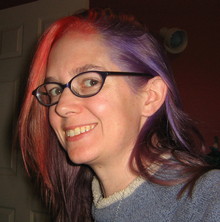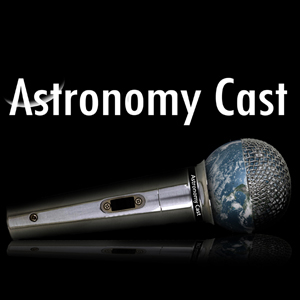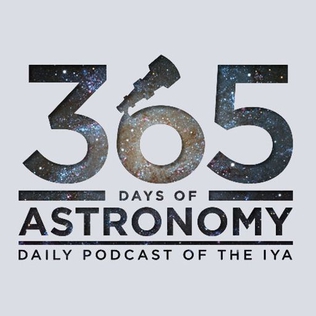
Kij Johnson is an American writer of fantasy. She is a faculty member at the University of Kansas.

Skepticality was the official podcast of The Skeptics Society's Skeptic magazine. Beginning in May 2005, the podcast explores rational thought, skeptical ideas, and famous myths from around the world and throughout history. Each episode is an audio magazine featuring regular segments by contributors who are specialized in specific areas of critical thought followed by featured content which is usually in the form of an interview with a researcher, author, or individual who is helping promote skeptical thought and/or science in an effective way. It has featured interviews with James Randi, and scientists, such as authors and astronomers Phil Plait and Neil deGrasse Tyson, Greg Graffin from Bad Religion, Adam Savage from the MythBusters, songwriter Jill Sobule, author Ann Druyan and science communicator Bill Nye.

The Amazing Meeting (TAM), stylized as The Amaz!ng Meeting, was an annual conference that focused on science, skepticism, and critical thinking; it was held for twelve years. The conference started in 2003 and was sponsored by the James Randi Educational Foundation (JREF). Perennial speakers included Penn & Teller, Phil Plait, Michael Shermer and James "The Amazing" Randi. Speakers at the four-day conference were selected from a variety of disciplines including scientific educators, magicians, and community activists. Outside the plenary sessions the conference included workshops, additional panel discussions, music and magic performances and live taping of podcasts including The Skeptics' Guide to the Universe. The final Amazing Meeting was held in July 2015.

Escape Pod is a science fiction podcast magazine produced by Escape Artists, Inc. It proclaims itself "the world's leading science fiction podcast". The present co-editors are Mur Lafferty and S. B. Divya.
The Parsec Awards were a set of annual awards created to recognize excellence in science fiction podcasts and podcast novels. The awards were created by Mur Lafferty, Tracy Hickman and Michael R. Mennenga and awarded by FarPoint Media. They were first presented in 2006 at DragonCon. In 2009 the awards were described as "one of the most recognizable honors in science and fiction podcasting". The awards were given from 2006 to 2018.

Mur Lafferty is an American podcaster and writer based in Durham, North Carolina. She was the editor and host of Escape Pod from 2010, when she took over from Steve Eley, until 2012, when she was replaced by Norm Sherman. She is also the host and creator of the podcast I Should Be Writing. Until July 2007, she was host and co-editor of Pseudopod. She was the Editor-in-Chief of the Escape Artists short fiction magazine Mothership Zeta until it went on hiatus in 2016.

Decoder Ring Theatre is a Canadian theatre and audio production company based in Toronto. It runs a podcast of the same name that has two series: Red Panda Adventures and Black Jack Justice, both of which are done in the style of old-time radio and are released on alternating weeks.

Astronomy Cast is an educational nonprofit podcast discussing various topics in the field of astronomy. The specific subject matter of each episode shifts from week to week, ranging from planets and stars to cosmology and mythbusting. Premiering on September 10, 2006, the weekly show is co-hosted by Fraser Cain and Dr. Pamela L. Gay. Fraser Cain is the publisher of the space and astronomy news site Universe Today and has a YouTube channel with over 200,000 subscribers. The other host, Dr. Pamela L. Gay, is a Senior Education and Communication Specialist and Senior Scientist for the Planetary Science Institute and the director of CosmoQuest. Each show usually has a length of approximately 30 minutes, and all shows, past and present, are accessible for download through the Astronomy Cast archive, as well as in podcast format.

365 Days of Astronomy is an educational podcast, inspired by the International Year of Astronomy, published daily beginning in 2009. It is produced as a collaboration between Southern Illinois University Edwardsville and Astrosphere New Media Association. The individual episodes are written, recorded, and produced by people all around the world. The podcast had 3,000–10,000 listeners each day.

Philippa Ballantine, who also used the pen name Pip Ballantine, is a contemporary New Zealand author of speculative fiction and an avid podcaster. She now lives in Manassas, Virginia, with her husband and collaborator Tee Morris.

Pseudopod is a podcast launched on 11 August 2006 which presents horror genre short stories. It is part of Escape Artists, Inc. which also produces the podcasts Escape Pod, PodCastle and Cast of Wonders. Pseudopod is co-edited by Shawn M. Garrett and Alex Hofelich and hosted by Alasdair Stuart. It was previously edited by Ben Phillips until the end of 2010. Wil Wheaton calls Pseudopod "pretty damn awesome" and cites it as an example of how new media is changing the broadcast landscape.
Lightspeed is an American online fantasy and science fiction magazine edited and published by John Joseph Adams. The first issue was published in June 2010 and it has maintained a regular monthly schedule since. The magazine currently publishes four original stories and four reprints in every issue, in addition to interviews with the authors and other nonfiction. All of the content published in each issue is available for purchase as an ebook and for free on the magazine's website. Lightspeed also makes selected stories available as a free podcast, produced by Audie Award–winning editor Stefan Rudnicki.

Emily Stewart Lakdawalla is an American planetary geologist and former Senior Editor of The Planetary Society, contributing as both a science writer and a blogger. She has also worked as a teacher and as an environmental consultant. She has performed research work in geology, Mars topography, and science communication and education. Lakdawalla is a science advocate on various social media platforms, interacting with space professionals and enthusiasts on Facebook, Google+ and Twitter. She has appeared on such media outlets as NPR, BBC and BBC America.

Mark Alden Crislip is an infectious disease doctor in Portland, Oregon and former chief of infectious diseases at Legacy Health hospital system. Crislip has generated three podcasts, QuackCast, PusCast, and Gobbet o' Pus. A writer for medicine-related blogs, he has compiled his blog posts into several books. He co-founded the Society for Science-Based Medicine and served as president from 2013 to 2019.

Susan Gerbic is an American studio photographer who became known as a scientific skepticism activist, mostly for exposing people claiming to be mediums. A columnist for Skeptical Inquirer, she is the co-founder of Monterey County Skeptics and a fellow of the Committee for Skeptical Inquiry.

A horror podcast is a podcast that covers fiction, non-fiction, or reviews of the horror genre generally.

Wolf 359 is a science fiction podcast created by Gabriel Urbina and produced by Gabriel Urbina and Zach Valenti under Kinda Evil Genius Productions. Following in the tradition of Golden Age radio dramas, Wolf 359 tells the story of a dysfunctional space station crew orbiting the star Wolf 359 on a deep space survey mission. The show starts off as lighthearted comedy that focuses on character dynamics before becoming more of a thriller. After 61 episodes, the show concluded on December 25, 2017.















